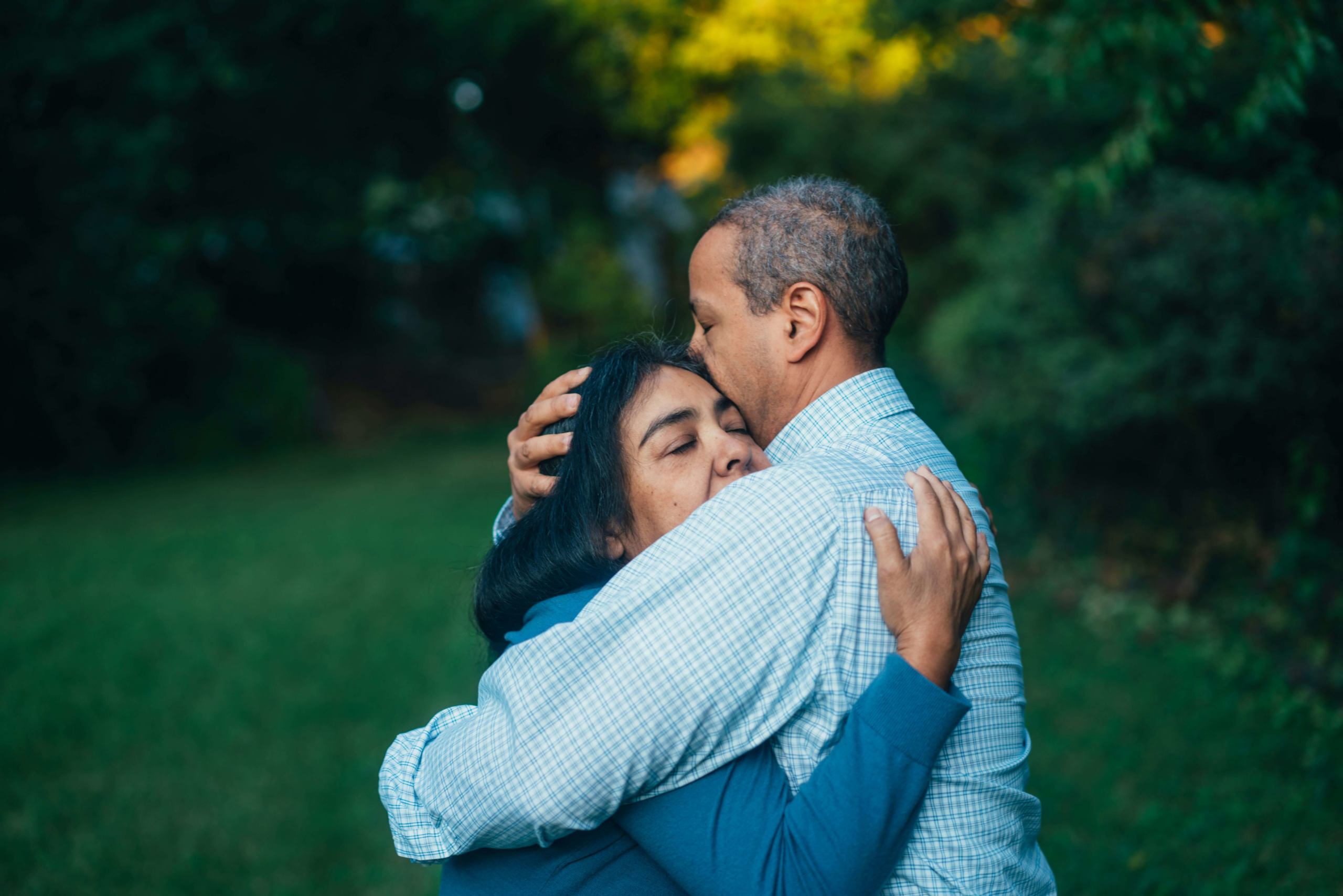In the darkest corners of our lives, emotional abuse can cast long and painful shadows, leaving us wounded and struggling to find light and hope. However, in the face of adversity, the human spirit is resilient. Healing is a courageous journey of self-discovery, self-compassion, and empowerment. In this blog, we will look at what emotional abuse is, how it impacts you, and explore the path to healing.
What is Emotional Abuse?
Emotional abuse, also known as psychological or mental abuse, is a type of relational trauma that includes repeated non-physical behaviors meant to control or isolate you. This may present as threats, insults, humiliation, intimidation, dismissiveness, lying, and other covert controlling behaviors. Sometimes emotional abuse is more obvious, like a partner yelling at you or calling you names. An emotionally abusive partner may try to gaslight you by telling you that you are overreacting, being too emotional, or that you can’t take a joke.
While these repeated behaviors do not leave physical marks, they do disempower and traumatize the partner who is experiencing the abuse. Emotional abuse can be just as damaging as physical abuse, and its effects can have long-lasting impacts on your mental and emotional health.
What is the Impact of Emotional Abuse?
Emotional abuse is more subtle than physical abuse making it quite difficult to spot. Those who suffer from this type of abuse are often hesitant to seek help or tell friends and family about their concerns because they fear they will not be taken seriously. The impact of emotional abuse is profound and far-reaching. The chronic and insidious nature of repeated emotional abuse leaves one in a constant state of insecurity. Most clients describe a feeling of walking on eggshells to please the abuser. Emotional abuse undermines one’s sense of self-worth, security, and emotional stability.
Common impacts of emotional abuse:
- Identity Crisis
- Low Self-Esteem and Self-Worth
- Anxiety and Depression
- Post-Traumatic Stress Disorder (PTSD)
- Self-Blame and Guilt
- Social Isolation
- Difficulty Trusting Others
- Impaired Decision-Making
- Impact on Future Relationships
Healing from Emotional Abuse
Healing from emotional abuse is possible with the right support and resources. Seeking professional help from therapists or counselors experienced in trauma and abuse is vital to your healing. Support from friends, family, or support groups also plays an important role in the healing process.
In my experience, clients with abuse in their history suffer from what I call a lost sense of self. This is the identity piece mentioned above. Most report a profound disconnection from self and others. Many describe some form of losing their voice and ability to assert needs and/or wants. The controlling tactics keep a person in a state of fear and survival – a state where one must give up their own needs and growth in order to survive.
The moment you reach out to a trauma-informed therapist is the moment you begin healing. A safe therapeutic relationship is crucial for individuals suffering from emotional abuse. Unresolved trauma from emotional abuse that keeps you in a state of survival is detrimental – it shuts down your ability to grow and evolve. It shuts down your ability for growth which is meant to continue throughout life. The good news, though, is that there is hope. You can heal.
New Experiences, Healthy Relationships and Healing
Neuroscience shows that new experiences and healthy relationships can help you heal. The brain’s capacity for neuroplasticity, the ability to change or grow new neural networks, allows for this possibility of recovery. It is possible to reshape your brain and autonomic nervous system from a place of fear and scarcity (surviving) to a place of safety and connection (thriving). You are not hard-wired. Your system is flexible and has the miraculous ability to shift and change throughout life. While we cannot take away your trauma, we can work together to undo the effects of trauma and help you begin to live a happier life.
It’s important to remember that the effects of emotional abuse are not your fault. Seeking help is a courageous step toward reclaiming your well-being and rebuilding a healthier life. It does take time, but with the right support and compassion, you can regain emotional strength, figure out who you are, and move forward to a healthier and happier future. Check out my approach to healing trauma and seven actions you can take:
Acknowledging the Wounds
The first step on the path to healing is acknowledging the emotional wounds left by abuse. Recognizing the impact of emotional abuse can be daunting, but it is a crucial step toward regaining control over your life. You are not defined by the abuse. It is an experience that you can learn from and grow beyond.
Seeking Professional Support
Healing from emotional abuse requires the help of trained professionals. Therapists specializing in trauma and abuse can provide a safe and non-judgmental space to explore your emotions, work through past traumas, and develop healthy coping mechanisms. Remember, seeking help is not a sign of weakness but a testament to your strength and determination to heal.
Cultivating Self-Compassion
Throughout your healing journey be kind to yourself. Practice self-compassion and let go of any self-blame or shame you may carry. Emotional abuse can distort your self-image, but remember that you are deserving of love, respect, and happiness. Treat yourself as you would treat a dear friend—with understanding and gentleness.
Setting Boundaries
One of the most empowering steps in healing from emotional abuse is learning to set and maintain healthy boundaries. Boundaries protect your emotional well-being and prevent further harm. As you grow stronger you’ll find the courage to say “no” to toxic relationships and situations, and “yes” to your well-being.
Embracing Supportive Relationships
Surround yourself with supportive and caring individuals who uplift and validate your feelings. Genuine connections with friends, family, or support groups can be invaluable during your healing. Opening up to trusted people can help you release the burden of isolation and remind you that you are not alone.
Building a Toolkit of Coping Strategies
Develop a toolkit of healthy coping strategies to manage stress, anxiety, and triggers. Mindfulness, meditation, journaling, yoga, or just being outside in nature can serve as powerful tools to ground yourself during tough moments. As you build resilience, you’ll find strength in these coping mechanisms.
Redefining Self-Identity
Emotional abuse can blur your sense of self. Take the time to rediscover who you are beyond the abuse. Reconnect with your passions, interests, and aspirations. Embrace the journey of self-discovery as an opportunity to rewrite your narrative and create a future that aligns with your authentic self.
Begin Trauma Therapy for Emotional Abuse in Texas Today!
Healing from emotional abuse is a courageous and transformative journey. Though the scars may run deep, remember that healing is possible with the help of a caring trauma therapist such as myself. Neuroscience backs this up. We will embrace the process with patience and self-compassion and celebrate each step forward, no matter how small. As you heal, you’ll find that the shadows of emotional abuse can be replaced by empowerment and a future filled with hope. You have the strength within you to nurture the wounds and emerge whole, resilient, and ready to embrace the beautiful possibilities life has to offer. Follow the steps below to begin trauma therapy at Lysle Shaw Psychotherapy:
- Get in touch and schedule a consultation
- Start your journey to healing
Other Therapy Services Offered in Austin, Houston, and throughout Texas
Lysle Shaw Psychotherapy offers more than just trauma therapy in Austin, TX. I offer a variety of specialties including walk and talk therapy, online psychotherapy, Jungian dreamwork and individual therapy for relationship issues. Visit today to begin your journey to getting past your trauma.

Recent Posts
Can You Heal From Relational Trauma? Part 1
Absolutely, you can heal from relational trauma! In this series of blog posts, I'm excited to introduce you to Gretchen Schmelzer’s Trail Guide to the 5-Phase Cycle of Healing Repeated Trauma. Gretchen, a psychologist, trauma [...]
Relationships Matter! Insights from an Online Relational Therapist in Houston, TX
Spring is upon us and here in Houston, Texas, it's likely to phase into summer heat soon. We happily got a cool snap this week and I found myself able to do my runs under [...]
Can You Recover from Religious and Spiritual Trauma? Exploring With Online Trauma Therapy in Austin, TX
A Brief Look at Trauma Before we look at religious and spiritual trauma let’s look at a brief definition of trauma. Trauma is any event that overwhelms a person’s ability to cope with it. This [...]







